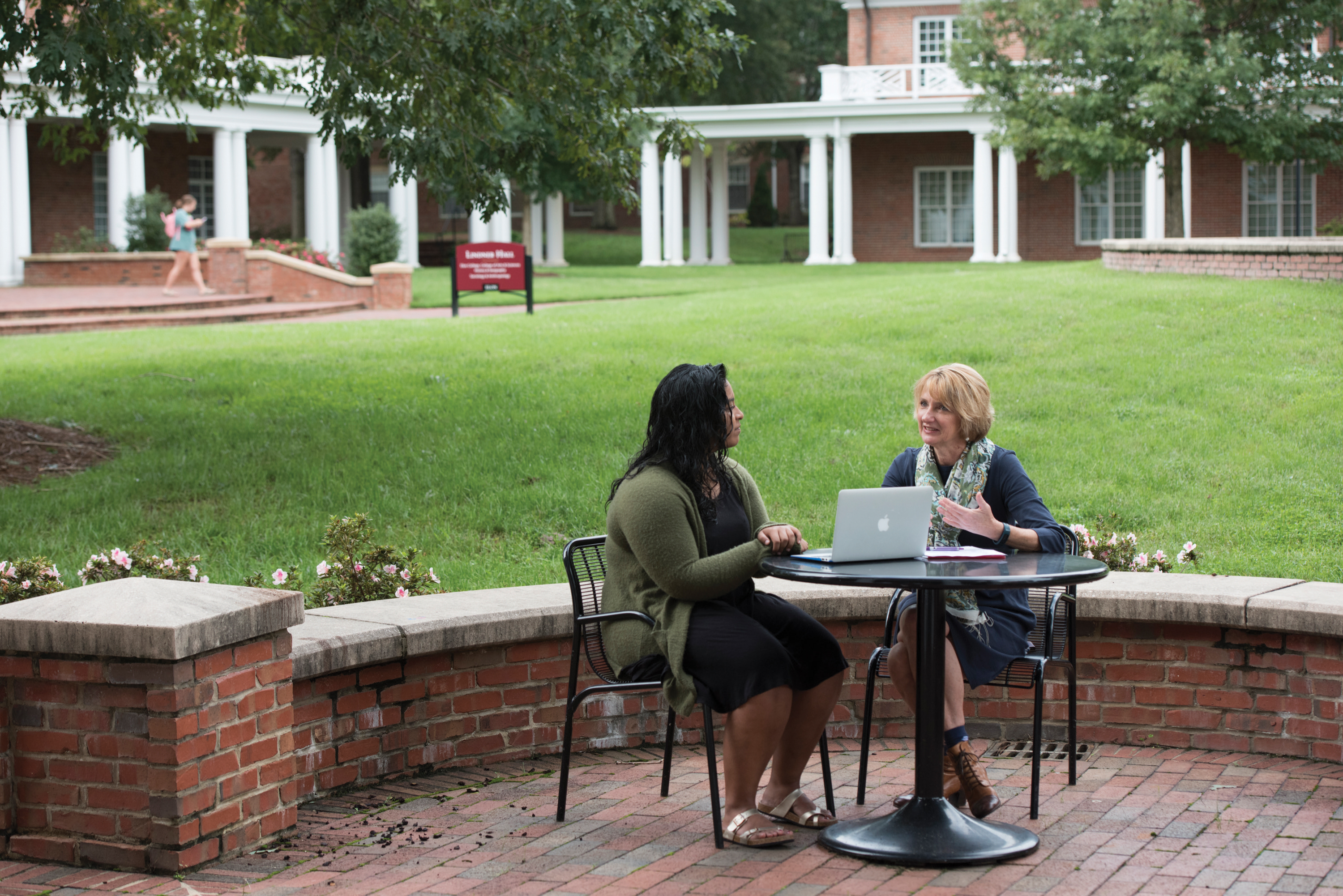Professor of Psychology Maureen Vandermaas-Peeler is leading efforts to help students gather the tools they need to develop meaningful mentoring constellations.
Mentoring is central to the Elon experience, but do we know what works and where we can improve? Working to answer those questions is an Elon team headed by Professor of Psychology Maureen Vandermaas-Peeler, with co-leaders Associate Professor of Religious Studies Amy Allocco, Assistant Director of Career Services for Student Employment Nancy Carpenter and Interim Assistant Dean of Students Sylvia Muñoz, and supported by the
American Council on Education.
The deep dive into mentoring at Elon follows the university’s selection in 2020 to participate in the inaugural cohort of ACE’s Learner Success Laboratory, a partnership with select colleges and universities as they pursue critical institutional priorities. It’s foundational work that will be essential to realizing the goals of the Boldly Elon strategic plan related to engaged learning and mentoring, Vandermaas-Peeler says.
“It’s giving us an opportunity to see what’s working well and where we have opportunities to do better,” she says. “We are trying to ascertain what it means to be a mentor, what meaningful mentor relationships look like, as well as who students don’t identify as mentors and why not.” A key element of the research, she adds, is defining mentoring and mentoring constellations — that network of mentors a student may have who engage with them in academic, personal, cultural and social ways.
“If we don’t define high-quality mentoring at Elon, the term ‘mentoring’ may become ubiquitous and lose its meaning and impact.”
The Learner Success Laboratory, which is supported by a grant from the Strada Education Network, is designed to provide the resources for colleges and universities to conduct a self-study in their area of focus and develop recommendations for a future course of action.
Central to exploring the state of mentoring at Elon have been about 60 interviews with undergraduate students and 30 interviews with staff and faculty about mentoring relationships, with more interviews completed this summer. A survey for first- and fourth-year students was launched in the spring as a means of benchmarking students’ mentoring experiences over time, and a survey for alumni is also being developed. “Conducting these interviews has been a very powerful reinforcement for me,” Vandermaas-Peeler says. “I feel very invested in empowering students with the tools they need to develop meaningful mentoring constellations. I feel very privileged to gather that data.”
The research team expects to deliver final recommendations in early 2022 to create a strong foundation for the Boldly Elon goals of expanding transformative relationships at Elon.
Learn more about “Theme 1: Learn” of the Boldly Elon strategic plan.



